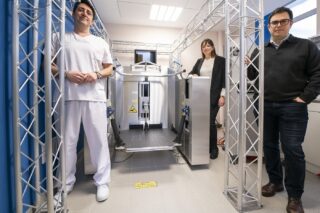The SCD-Well randomized controlled trial highlights that mindfulness and health self-management programs offer promising non-pharmacological interventions to reduce dementia risk in older adults.
Recent research published in Alzheimer’s & Dementia has shed light on promising non-pharmacological interventions aimed at mitigating the risk of cognitive decline in older adults. The study, a secondary analysis of the SCD-Well randomized controlled trial, explored the effects of mindfulness and health self-management programs on older adults experiencing subjective cognitive decline (SCD). Given that individuals with SCD are at higher risk of developing dementia, these findings have significant implications for the medical community.
The trial, conducted across multiple European clinics, enrolled 347 participants (average age 72.7 years), the majority of whom were women. Participants were divided into two intervention groups: one underwent an 8-week mindfulness and compassion-based program (CMBAS), while the other engaged in an 8-week health self-management program (HSMP). Both programs aimed to address modifiable risk factors associated with dementia, such as psychological well-being and physical activity.
Aligning with the trial, the University of Caen and Normandy presented Golden Seniors at the first EU-MIND congress, dedicated to neuroimaging of neurodegenerative diseases. This project is based on the Silver Study / European Medit-Ageing project mentioned previously. It continues the investigation of the profound effects of meditation on aging by showing the journey of five elderly individuals from Normandy who chose to embark on a transformative mental training program.
Looking for dementia crisis alert systems? Check MedicalExpo’s marketplace.

The Role of Subjective Cognitive Decline in Dementia Risk
Subjective cognitive decline (SCD) is a self-reported perception of deteriorating cognitive function, despite normal results on standardized cognitive tests. Although SCD does not equate to clinical cognitive impairment, research shows that individuals experiencing SCD are at higher risk of progressing to mild cognitive impairment (MCI) or dementia. It has also been associated with increased anxiety and depressive symptoms, both of which are considered risk factors for cognitive decline.
Given that around 40% of dementia cases could potentially be prevented by addressing modifiable risk factors—such as physical inactivity, smoking, depression, and social isolation—there is growing interest in interventions that can bolster mental well-being and physical activity in at-risk populations. The SCD-Well trial aimed to evaluate the efficacy of mindfulness and self-management interventions in promoting emotional resilience and physical health in this vulnerable group.
Mindfulness-Based Interventions: CMBAS
The mindfulness-based intervention, referred to as the Caring Mindfulness-Based Approach for Seniors (CMBAS), was adapted from the well-known Mindfulness-Based Stress Reduction (MBSR) program. It included a combination of meditation practices, group sharing, and teaching sessions aimed at fostering mindfulness, compassion, and emotional regulation. The participants were encouraged to practice meditation regularly, both formally and informally, to integrate mindfulness into their daily routines.
Notably, the CMBAS group showed significant improvements in self-compassion, both immediately after the intervention and at the 6-month follow-up. Self-compassion, defined as a feeling of kindness toward oneself in the face of adversity, has been linked to a range of positive psychological outcomes, including greater life satisfaction, reduced stress, and improved mental health. For older adults, cultivating self-compassion may be especially important, as it helps them cope with age-related challenges, including declining physical health and social changes.

Interestingly, however, the study found no significant change in mindfulness scores among participants in the CMBAS group. This contrasts with previous studies, which have shown that mindfulness-based interventions typically result in increased mindfulness. The researchers suggest that the focus on compassion, rather than purely mindfulness, might explain the difference. Additionally, the relatively short duration of the intervention may not have allowed sufficient time for the participants to fully develop their mindfulness skills.
Health Self-Management Program (HSMP)
The second intervention, the Health Self-Management Program (HSMP), focused on promoting lifestyle changes to improve health and well-being. Participants engaged in group discussions and exercises centered around self-management of chronic conditions, problem-solving, sleep, stress, exercise, and healthy eating. This program was structurally equivalent to the CMBAS in terms of duration and administration but did not include mindfulness or compassion practices.
The HSMP group demonstrated a significant increase in physical activity, which was sustained at the 6-month follow-up. Physical activity is one of the most robust lifestyle factors linked to the prevention of cognitive decline. Numerous studies have shown that regular physical exercise improves cardiovascular health, reduces the risk of chronic diseases, and enhances brain health by promoting neuroplasticity and reducing inflammation. For older adults with SCD, maintaining physical activity can play a crucial role in delaying or preventing the onset of dementia.

Implications for Medical Practice
For medical professionals, these findings offer important insights into the role of behavioral interventions in promoting healthy aging. While pharmacological treatments for cognitive decline are limited, non-pharmacological interventions like mindfulness and self-management programs represent accessible and low-risk options for older adults at risk of dementia.
Encouraging patients to engage in structured mindfulness or health self-management programs could enhance their emotional resilience and improve their physical health, both of which are critical in preventing cognitive deterioration. Moreover, the sustained benefits observed in this trial—particularly the lasting effects on self-compassion and physical activity—underscore the long-term value of such interventions.
Future Directions
The results of the SCD-Well trial highlight the need for further research into the clinical significance of these interventions. While the improvements in self-compassion and physical activity are promising, their direct impact on cognitive function and dementia progression remains to be fully understood. Future studies should explore whether longer-term mindfulness interventions can yield more significant improvements in mindfulness and investigate the potential additive effects of combining mindfulness with physical exercise in older adults.
The SCD-Well trial provides compelling evidence that non-pharmacological interventions, particularly mindfulness-based and health self-management programs, can address modifiable risk factors for dementia in older adults with subjective cognitive decline. These findings pave the way for incorporating such interventions into clinical practice as a strategy to promote healthy aging and reduce the burden of dementia in aging populations.











